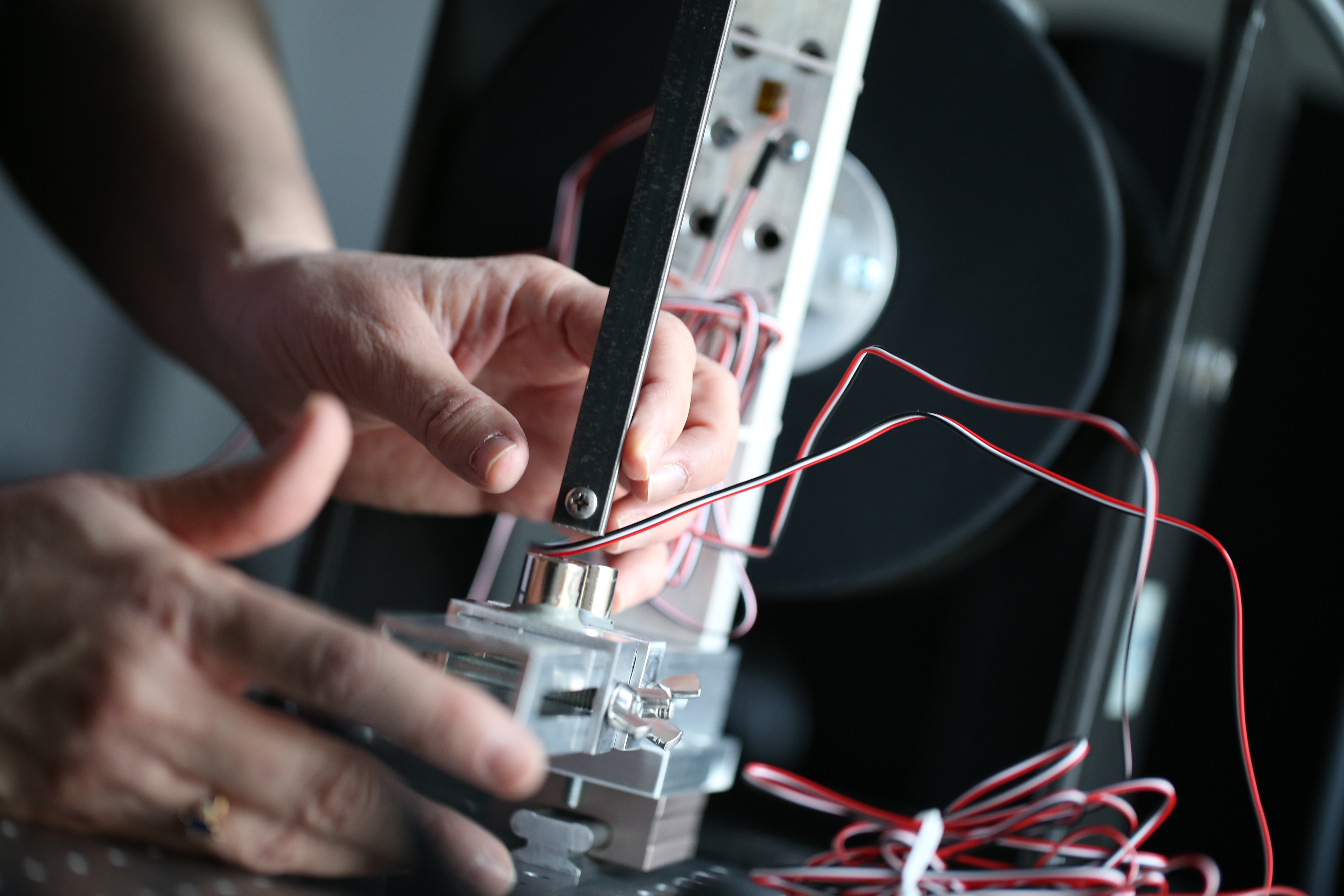Halliburton Partners with Baylor to Increase College Retention and Graduation Rates among Engineering and Computer Science Majors

Baylor University's School of Engineering and Computer Science (ECS) has received a grant from Halliburton to support the development of a pilot program, the Learning Resource Center, that aims to increase retention and graduation rates among undergraduate engineering and computer science students. (Matthew Minard / Baylor University Media & Communications)
Media contact: Kate Amaya, 254-710-6826, Kate_Amaya@baylor.edu
WACO, Texas (Oct. 9, 2015) – Baylor University’s School of Engineering and Computer Science (ECS) has received a grant from Halliburton to support the development of a pilot program, the Learning Resource Center, that aims to increase retention and graduation rates among undergraduate engineering and computer science students.
“We are thrilled to partner with Halliburton to create a community learning environment that fosters peer mentorship and a passion for engineering and computer science,” said Carolyn Skurla, Ph.D., associate professor of mechanical engineering in Baylor’s School of Engineering and Computer Science. “By providing students with resources like community study lounges, computer labs, test banks and peer mentors and tutors, the goal is to increase retention within the degrees and graduate more engineers and computer scientists.”
The Learning Resource Center will provide community-building, leadership-training opportunities and tutoring to undergraduate students living outside of a living and learning environment. Halliburton’s contribution will fund student tutors and peer mentors to foster a sense of belonging by connecting them to academic resources close to their on-campus living facilities.
“Halliburton is committed to our strategic educational partners and interested in increasing college retention and graduation rates among STEM majors,” said Mark McCollum, executive vice president and chief integration officer. “We are excited to partner with Baylor on such an important initiative that will position students for a successful transition into the professional world.”
In addition to the grant for the Learning Resource Center pilot program, Halliburton provided continued funding for “Ladies & Legos,” a program that engages women in STEM (science, technology, engineering and math) fields to encourage and empower young women in college through active dialogue and community support.
“Halliburton’s funding of the Learning Resource Center and continued support of ‘Ladies & Legos’ allows us to support a more diverse population of undergraduate engineering and computer science majors,” said Michael Thompson, Ph.D., associate dean for undergraduate programs. “The diversification of our student population allows for greater innovation both at Baylor and in the companies that recruit our students.”
ABOUT BAYLOR UNIVERSITY
Baylor University is a private Christian University and a nationally ranked research institution, characterized as having “high research activity” by the Carnegie Foundation for the Advancement of Teaching. The University provides a vibrant campus community for approximately 16,000 students by blending interdisciplinary research with an international reputation for educational excellence and a faculty commitment to teaching and scholarship. Chartered in 1845 by the Republic of Texas through the efforts of Baptist pioneers, Baylor is the oldest continually operating University in Texas. Located in Waco, Baylor welcomes students from all 50 states and more than 80 countries to study a broad range of degrees among its 12 nationally recognized academic divisions. Baylor sponsors 19 varsity athletic teams and is a founding member of the Big 12 Conference.
ABOUT THE SCHOOL OF ENGINEERING AND COMPUTER SCIENCE
With more than 10 percent of Baylor University’s freshman class pursuing major courses of study in the School of Engineering and Computer Science (ECS), the focus remains on preparing graduates for professional practice and responsible leadership with a Christian world view. ECS majors include bioinformatics, computer science, electrical and computer engineering, general engineering, and mechanical engineering. Among ECS graduate programs are Master of Science degrees in biomedical engineering, computer science, electrical and computer engineering, and mechanical engineering, Ph.D. programs in electrical and computer engineering and mechanical engineering, and several dual degree programs. The Teal Residential College, in which engineering and computer science students and faculty live, fosters the pursuit of wisdom, academic excellence, and meaningful relationships for the development of diverse, innovative leaders.